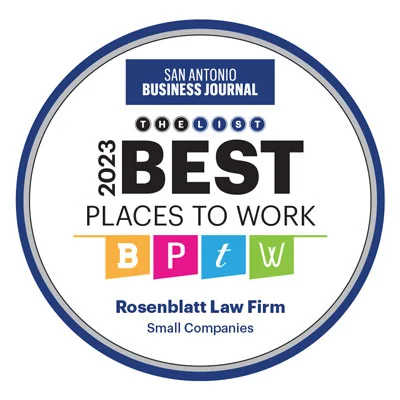As the nation begins to reopen businesses and employees return to the workplace, employers are facing many decisions regarding the safety of their employees, particularly those considered “high risk” for suffering the ill-effects of COVID-19. Last week, the Equal Employment Opportunity Commission (“EEOC”) and the Occupational Safety and Health Administration (“OSHA”) issued new guidance for employers with “high risk” employees and about the use of face masks in the workplace.
COVID-19 and the Americans with Disabilities Act (“ADA”)
As a best practice, the EEOC advises employers with on-site employees to provide the accommodations for an employee with a disability upon returning to the workplace:
- Employers can either (i) provide a notice to all employees of the CDC-generated “high risk” medical conditions, give instructions on the employer contact for accommodation requests, and explain that the employer may consider each individual case or (ii) provide a notice to all employees who are returning to the workplace stating employer is willing to consider accommodations on an individual basis.
- Reasonable accommodation may consist of an alterative method of screening due to a medical condition or religion.
- Pregnant employees cannot be excluded from the workplace without their consent; however, such employees may be entitled to job modifications such as remote work or leave under the usual ADA rules
- Employers must store all medical information, including daily temperature checks or any documentation related to whether the employee has the disease, separate from the employee’s personnel file. The employer may disclose the name of an employee that tests COVID-19 positive to a public health agency. If employee shows COVID-19 like symptoms, the employer may send employee home, without violating the ADA.
- Employers may ask employees about COVID-19 symptoms identified by the EEOC and also any other symptoms that have been identified by the CDC or other public health authorities (e.g. symptoms such as loss of smell or taste, nausea, diarrhea, and vomiting).
- Employers may choose to administer COVID-19 testing to employees before they enter the workplace, because such individual that tests COVID-19 positive will pose a direct threat to the health of others—meeting the required standard.
- Important to note: employees are not entitled to accommodation under the ADA to avoid exposing a family member who may be at higher risk of contracting the virus.
COVID-19 and the Age Discrimination in Employment Act (“ADEA”)
- While employers may be concerned about employees over 65 being high risk, it is important to note the ADEA expressly prohibits a covered employee from “involuntary excluding an individual from the workplace based on being 65 or older, even if the employer acted for benevolent reasons such as protecting the employee due to higher risk of severe illness from COVID-19.” The ADEA does not include a right to reasonable accommodation based on age like the ADA does, but it can be provided flexibility or accommodation due to a medical condition other than age.
COVID-19 and Title VII
- Employees may be provided with flexible work schedules so long as it is not based on gender or sex due to the caretaking roles of the parent
- Employers should be aware of pandemic-related harassment, especially those employees who are perceived to be Asian. Employers may provide all employees with a reminder of Title VII and that harassment consequences can lead to disciplinary action and/or termination.
For further and more detailed information on the EEOC’s guidance, please find the following link provided: https://www.eeoc.gov/wysk/what-you-should-know-about-covid-19-and-ada-rehabilitation-act-and-other-eeo-laws?utm_content=&utm_medium=email&utm_name=&utm_source=govdelivery&utm_term
OSHA and Face Masks:
OSHA has released additional guidance regarding face masks in the workplace as follows:
- Employers are not required to provide face masks but may encourage workers to wear them at work, because face masks are not considered personal protective equipment (“PPE”) based on CDC guidelines. Employers are given the discretion on whether to impose or encourage such regulation based on the type or work and work environment.
- Social distancing measures should still be in place regardless of whether face masks are used.
- Surgical masks or face cloths are not an acceptable substitute for respiratory protection in the construction industry.
- For more information on OSHA guidance, please visit the following link: https://www.osha.gov/SLTC/covid-19/covid-19-faq.html
Rosenblatt Law Firm has created policies and procedures for employers to incorporate into their employee handbooks based on this updated guidance.



